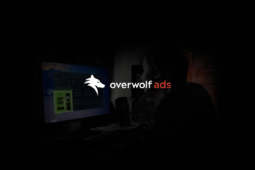Digest: Brainlabs Acquires Exverus Media; WARC Report Reveals Key Consumer Trends Shaping Purchase Decisions
by on 24th Jul 2025 in News

In today’s Digest, we discuss Brainlabs' acquisition of Exverus Media to expand its US operations, WARC’s report revealing key consumer trends shaping purchase decisions, and the metrics gap hindering creator marketing impact.
Brainlabs acquires Exverus Media
Brainlabs is planting deeper roots in the US with the acquisition of Exverus Media, a move that solidifies its West Coast presence and supercharges its full-funnel media buying capabilities. While terms of the deal remain under wraps, the impact is crystal clear: with Exverus managing over USD$100m (£77m) in client media spend, Brainlabs' US billings now surges to USD$1bn (£770bn). The agency also crosses a new milestone with a US team of 500 and a global headcount exceeding 1,060.
Daniel Gilbert, Brainlabs’ CEO and founder, hailed the move as a defining moment in the agency’s evolution. Gilbert notes that move marks “transformation into a full-service AOR across all media channels”.
WARC report reveals key consumer trends shaping purchase decisions
WARC has unveiled its 2025 Global Consumer Trends report, spotlighting the key forces expected to shape purchasing decisions across markets and categories over the next year. Drawing on GWI survey data from 54 markets, alongside WARC’s own research and case studies, the report outlines five trends that brands can’t afford to ignore: the widening cost-of-living gap, increasing trust in individual creators, AI assistants disrupting the purchase journey, consumers’ proactive approach to health, and the rise of alternative social activities.
According to GWI, 55% of low-income consumers now say they’d rather pay less for a cheaper own-brand product than pay more for a brand they know. In contrast, just 40% of high-income consumers say the same, highlighting a sharp divergence in purchasing power and brand loyalty.
The influence of influencer marketing also is deepening, according to the report: 47% of social media users globally say they’ve made purchases based on influencer endorsements in the past year. Trust is the differentiator, as creators are seen as more authentic, transparent, and relatable than traditional spokespeople or corporate voices.
This shift is reinforced by changing news habits: 57% of consumers now get their news from social media, more than national TV (52%) or news websites (49%). Among younger demographics, that figure is even higher –71% of Gen Z have consumed news via social platforms in the past month, compared to 62% of millennials, 48% of Gen X, and 33% of baby boomers.
According to Stephanie Siew, Senior Research Executive, WARC, “With this report we aim to provide a wider view of the major issues confronting our industry from the perspective of consumers, with suggestions to help businesses create the most impact in the coming year.”
Metrics gap hinders creator marketing impact
A new study from Billion Dollar Boy exposes that while brands are designing creator campaigns to build awareness and reach new audiences, they’re still measuring success through the lens of ROI and customer acquisition metrics that don’t always align with creative intent. Based on a survey of 2,000 senior marketers across the US and UK, the report highlights a misalignment that may be stifling innovation and undervaluing the impact of creator-led campaigns.
According to the findings, increasing brand awareness (41%) and broadening audience reach (37%) are the top two campaign objectives while planning both clearly upper-funnel goals. But nearly 35% of marketers also cite sales and conversions as key targets, highlighting mounting pressure to deliver across the funnel.
At the same time, measurement remains rooted in lower-funnel metrics. The top KPIs for success are: return on investment (ROI) 60.47%, customer acquisition and retention 60.27%, brand sentiment and perception 59%, engagement metrics 53%, and share of voice 40%
This creates a strategic disconnect as campaigns designed to grow long-term brand equity are being assessed using short-term sales performance metrics.
AcquisitionAgenciesMarketingSocial Media








Follow ExchangeWire